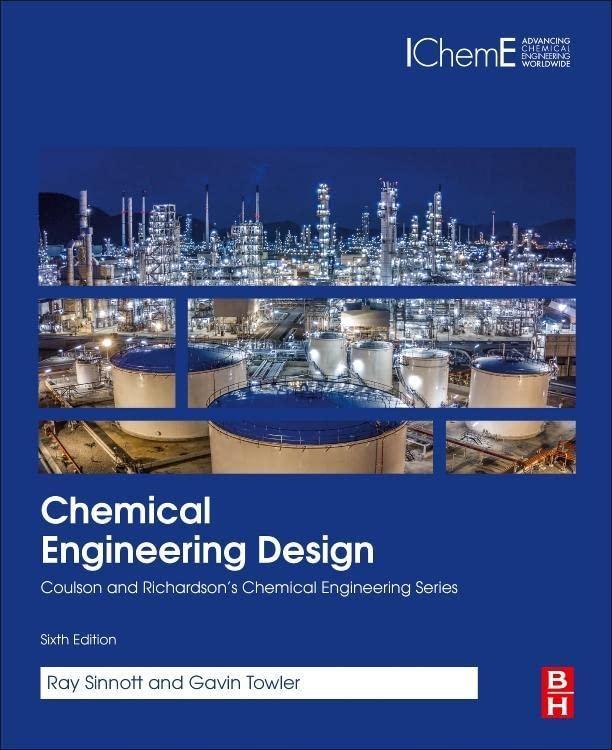A new process is being developed for converting benzene to cyclohexane by hydrogenation over a noble metal
Question:
A new process is being developed for converting benzene to cyclohexane by hydrogenation over a noble metal catalyst. The reaction is carried out at 50 bara, at a feed temperature of 220 °C, and the reactor contents should not exceed 300 °C, to minimize formation of methyl cyclopentane (MCP) byproduct. The reaction is essentially irreversible under these conditions and the temperature can be controlled by staged addition of cold hydrogen. Six beds are to be used, each converting the same amount of benzene, with overall conversion of 100%. The average weight hourly space velocity based on benzene is 10 h–1 for each adiabatic bed, and a pressure drop of 0.5 bar is acceptable across each bed. The catalyst is in the form of 1/16th inch (1.588 mm) beads with average bulk density of 700 kg/m3. Design, size and cost a reactor for making 200,000 metric tons per year of cyclohexane using this process. Cautionary note: This example is hypothetical and all numbers in the problem statement are fictitious. Any resemblance to any commercial cyclohexane technology is purely coincidental.
Step by Step Answer:

Chemical Engineering Design
ISBN: 9780081025994
6th Edition
Authors: Ray Sinnott, R.K. Sinnott, Sinnott Gavin Towler





